Selune Valley Revival: a successful international conference!
The International Dam removal Conference held from the 24th to the 26th of September, organised by ERN with support from numerous partners was a great success. Participants came from 20 countries and three continents with 30% from the local, Rennes-Avranches region.
The day preceding the conference itself participants and the locals attended a debate “Salmon in our rivers: myth or reality?” organized by Brittany Great Migrators for the International Year of the Salmon.
Interaction was lively and diverse, beginning with a discussion on the importance of ecological continuity for rivers. The presentation of dam removal projects in France and abroad including feedback, has come to remind us that the restoration of ecological continuity is a transcontinental movement affecting all countries. Benefits to the quality of our rivers and territories are very real. Examples presented show just how much French territory profits from a committed, leading policy in this field.
Central to the debates was the Sélune river, with the presentation of work in progress including the first results of the remarkable scientific monitoring program coordinated by INRA, which has taken place over the past fifteen years. This didn’t leave out the sociological issues of dam removal, indeed they were put at the heart of the dialogue via the restitution of the sociological study conducted on the Sélune with strong participation and expressions of their feelings by the association of the Friends of the Dams. Hopefully many positions were understood from all sides.
In summary, a fascinating conference with a lot of ideas exchanged in a pleasant atmosphere, and in the beautiful setting of Rennes and the wonderful bay of Mont Saint Michel and Vallée de Sélune!
Thank big you to all participants, stakeholders, and funding partners for making this event possible.
More infos https://www.ern.org/en/colloque-international-selune/
> Presentations, talks and more informations


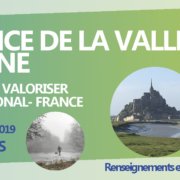
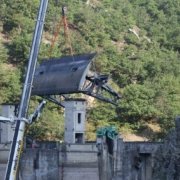

 ERN France
ERN France ERN is the official WWF Freshwater Partner in France and cooperates with WWF Switzerland, Austria, Netherlands and others
ERN is the official WWF Freshwater Partner in France and cooperates with WWF Switzerland, Austria, Netherlands and others